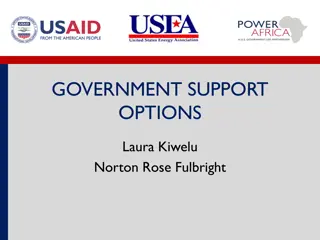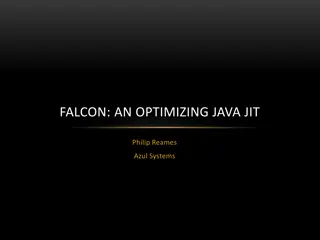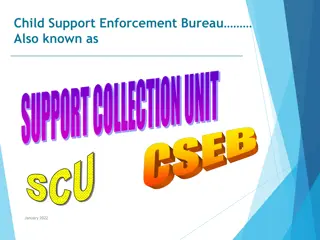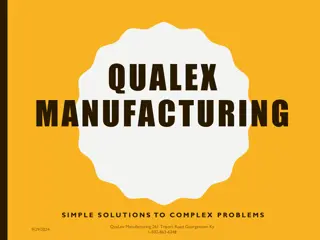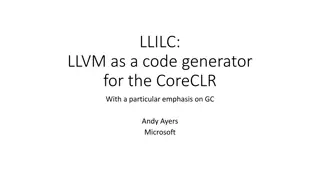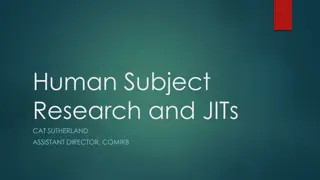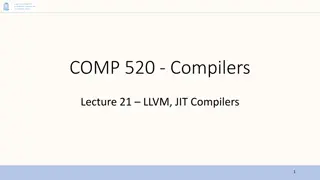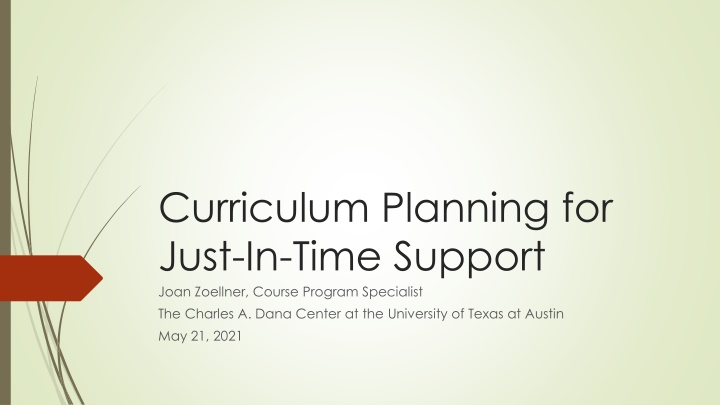
Effective Strategies for Just-in-Time Curriculum Planning
Explore the importance of backmapping in curriculum planning, focusing on required topics rather than traditional ones, with a strong emphasis on formative assessment and flexibility for instructors. Discover various just-in-time strategies and considerations for corequisite courses in a terminal versus pathway context.
Download Presentation

Please find below an Image/Link to download the presentation.
The content on the website is provided AS IS for your information and personal use only. It may not be sold, licensed, or shared on other websites without obtaining consent from the author. If you encounter any issues during the download, it is possible that the publisher has removed the file from their server.
You are allowed to download the files provided on this website for personal or commercial use, subject to the condition that they are used lawfully. All files are the property of their respective owners.
The content on the website is provided AS IS for your information and personal use only. It may not be sold, licensed, or shared on other websites without obtaining consent from the author.
E N D
Presentation Transcript
Curriculum Planning for Just-In-Time Support Joan Zoellner, Course Program Specialist The Charles A. Dana Center at the University of Texas at Austin May 21, 2021
Deciding on content Just-in-time remediation depends on the following: A set and predictable schedule in the college-level course Frequent, ongoing communication between the college-level course instructor and the corequisite course instructor (if appropriate) Backmapping of content, and other strategies A focus on topics that are required, not necessarily those that are traditional Regular formative assessment of student understanding
What is backmapping? A process of looking at course-level outcomes and identifying the prerequisite concepts and procedural skills needed to successfully perform those outcomes For the STEM pathway, consider backmapping not from precalculus or college algebra, but from Calculus 1 Focus the support course on those skills that will be needed in the college-level course, and minimize or discard topics that may be traditionally included in a beginning or intermediate algebra course but which are not directly related to the outcomes
Other just-in-time strategies While backmapping is a useful tool in planning the corequisite course, it is important to allow for flexibility at the discretion of the instructor. Formative assessment strategies allow the instructor to get a sense of student understanding and pivot their instructional plans as necessary: If students have already shown mastery of a prerequisite concept, don t spend more time on it! If students are showing a lack of mastery of an assumed topic, take time out to review and reinforce their understanding.
Formative assessment strategies Muddiest Point Exit ticket/Entry ticket Group Quizzes Clicker Questions/Concept Checks/Kahoot Red/Yellow/Green cups Think-Pair-Share Polling/Discussion forum
Backmapping Corequisites Terminal vs. Pathway When we are designing a corequisite course we need to consider whether the class is terminal or part of a longer pathway. If terminal, we have a lot of flexibility about what topics to not include in the corequisite if there are no concepts or topics that directly require a specific skill, then don t teach it! For courses in a pathway such as STEM, however, the problem gets more complicated.
Backmapping Math in Society Chat waterfall Question 1: What are some topics that are included in the traditional prerequisite sequence that are not necessary for Math in Society? Question 2: What are some topics that are not included in the traditional prerequisite sequence that would be useful for students taking Math in Society?
Backmapping Example Math in Society College-level course topic: Interpret various correlation coefficients, understand that correlation does not equal causation. Pre-requisite skills needed: Scatterplots Using technology to find trend lines and correlation coefficients Univariate and bivariate data Independent and dependent variables What else?
Backmapping Example Math in Society Which of the identified skills can we assume students already know, either from previous courses or previous topics in the semester? What might they need reminding of? What might be new to the students in the corequisite section? What will be new information for all students in the college-level class?
Calendar Example Math in Society Corequisite Course Scatterplots Using technology to find trend lines and correlation coefficients College-level course Correlation Coefficients Weak vs. Strong Positive vs. Negative Correlation vs. Causation in various contexts
Backmapping Corequisites Terminal vs. Pathway A framework for STEM pathway course corequisite discussions: When backmapping topics, ask yourself the following questions about each prerequisite skill or concept that is surfaced: Can I think of two standard problems or instances where this skill or concept is used in Calculus? and How is this skill or concept used in Calculus (e.g. do we use all the aspects and nuances that we currently cover)?
Follow-up questions For the skills or concepts that passed the previous test: Is this a skill that I usually have to reteach? and Does this skill show up in Calculus 1, or in a later course in the sequence?
Some examples Synthetic division Difference quotient Matrices and matrix operations Imaginary numbers
Contact Information Joan Zoellner Email: joan.zoellner@austin.utexas.edu Twitter: @joan_zoellner







